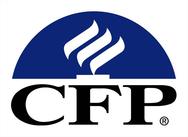Certified Financial Planner™ (CFP®)
Some of our professionals are certified for financial planning services in the United States by Certified Financial Planner Board of Standards, Inc. (“CFP Board”). The CFP® certification is voluntary. No federal or state law or regulation requires financial planners to hold the CFP® certification. You may find more information about the CFP® certification at www.cfp.net. CFP® professionals have met CFP Board’s high standards for education, examination, experience, and ethics.
To become a CFP® professional, an individual must fulfill the following requirements:
Education – Earn a bachelor’s degree or higher from an accredited college or university and complete CFP Board-approved coursework at a college or university through a CFP Board Registered Program. The coursework covers the financial planning subject areas CFP Board has determined are necessary for the competent and professional delivery of financial planning services, as well as a comprehensive financial plan development capstone course. A candidate may satisfy some of the coursework requirement through other qualifying credentials.
Examination – Pass the comprehensive CFP® Certification Examination. The examination is designed to assess an individual’s ability to integrate and apply a broad base of financial planning knowledge in the context of real-life financial planning situations.
Experience – Complete 6,000 hours of professional experience related to the personal financial planning process, or 4,000 hours of apprenticeship experience that meets additional requirements.
Ethics – Satisfy the Fitness Standards for Candidates for CFP® Certification and Former CFP® Professionals Seeking Reinstatement and agree to be bound by CFP Board’s Code of Ethics and Standards of Conduct (“Code and Standards”), which sets forth the ethical and practice standards for CFP® professionals.
Individuals who become certified must complete the following ongoing education and ethics requirements to remain certified and maintain the right to continue to use the CFP Board Certification Marks:
Ethics – Commit to complying with CFP Board’s Code and Standards. This includes a commitment to CFP Board, as part of the certification, to act as a fiduciary, and therefore, act in the best interests of the client, at all times when providing financial advice and financial planning. CFP Board may sanction a CFP® professional who does not abide by this commitment, but CFP Board does not guarantee a CFP® professional's services. A client who seeks a similar commitment should obtain a written engagement that includes a fiduciary obligation to the client.
Continuing Education – Complete 30 hours of continuing education every two years to maintain competence, demonstrate specified levels of knowledge, skills, and abilities, and keep up with developments in financial planning. Two of the hours must address the Code and Standards.
Chartered Financial Consultant® (ChFC®)
The ChFC® designation is offered by The American College. Designation holders are required to serve clients with the highest level of professionalism. The authority to use the ChFC® mark is granted by the Certification Committee of the Board of Trustees of The American College, and that privilege is contingent on adherence to strict ethical guidelines. All ChFC® advisors are required to do the same for clients that they would do for themselves in similar circumstances, the standard of ethical behavior most beneficial for their clients. Each ChFC® has taken 9 or more college-level courses on all aspects of financial planning. The average study time for the program is over 400 hours, and advisors frequently spend years earning this coveted distinction. Each ChFC® must also complete a minimum of 30 hours of continuing education every two years and must meet extensive experience requirements to ensure that you get the professional financial advice you need..
Chartered Retirement Plans Specialist™ (CRPS®)
The CRPS® Program focuses on individuals who specialize in creating, implementing, and maintaining retirement plans for businesses through a case-study based, client-centered problem-solving approach. The study program covers types and characteristics of retirement plans, including IRAs, small business retirement plans, defined contribution plans and more.
Registered Investment Advisor (RIA)
A registered investment adviser (RIA) is a firm that is an investment adviser in the United States, registered as such with the Securities and Exchange Commission (SEC) or state securities authorities. An RIA is defined by The Investment Advisers Act of 1940 as a "firm that, for compensation, is engaged in the act of providing advice, making recommendations, issuing reports or furnishing analyses on securities, either directly or through publications." An investment advisor has a fiduciary duty to his or her clients, which means that he or she has a fundamental obligation to provide suitable investment advice and to always act in the client’s best interest.
Registration of an investment advisor is not meant to denote any form of recommendation or endorsement by the SEC or state securities regulators. It simply means that the investment advisor has fulfilled all the requirements for registration as an investment advisor.
Financial Planning Association® (FPA®)
The FPA® is the premier resource for the public to find a financial planner who will deliver advice using an ethical, objective, client-centered approach. FPA members must be honest and unbiased with their clients, and they must provide financial advice that is in the client’s, not the advisor’s, best interest. The FPA also provides professional development and practice management support to CFPs and financial planning professionals.






